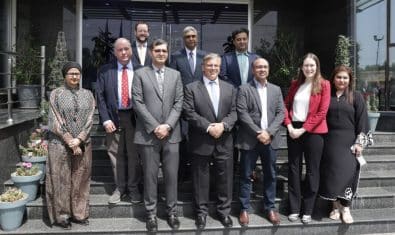The Federal Board of Revenue (FBR) has taken a major policy decision of not conducting computerized random balloting for the selection of cases for audit and rely upon field audits selected by the Commissioner’s Inland Revenue.
Sources told ProPakistani that FBR’s policy of random selection of cases for audit out of total taxpayers was not successful in the past. Under the computer random ballot, irrelevant cases were also picked along with genuine cases. Sometimes, cases that were not required to be audited are selected. This also resulted in litigation in courts.
The field Commissioners (Inland Revenue) have experience in dealing with the taxpayers on a day-to-day basis and can select cases for audit where necessary. The Commissioners have the power to select cases for audit in the field formations. In case of serious discrepancies in records, the audit would be conducted by the field formations.
Under the Finance Act 2022, the provisions of sections 177 and 214C shall not apply to a person whose income tax affairs have been audited in any of the preceding four tax years: Provided that the Commissioner may select a person under section 177 of the Income Tax Ordinance 2001 for audit with approval of the Board, it added.
The FBR had not selected tax cases for audit electronically during 2022-23 and 2021-22 under section 214C of the Income Tax Ordinance, 72B of the Sales Tax Act, and 42B of the Federal Excise Act.
In April 2019, the FBR selected 14,154 cases of income tax, sales tax, and FED for audit through electronic balloting for tax year 2018.
Under the risk-based selection of cases for audit, the FBR had selected 477,374 income tax payers for balloting out of which 10,982 or 2.3 percent cases were selected whereas out of 124,004 or 2.5 percent sales tax cases, 3,116 cases were selected through balloting whereas out of 725 cases of FED, the FBR selected 56 cases for audit.
The tax authority selected only 2.3 percent of the total cases available for audit for income tax, sales tax, and FED through the ballot for tax year 2017.
The idea of the third-party audit was floated by former finance minister Shaukat Tarin. During the tenure of Tarin, the Board-in-Council of the FBR had proposed the selection of a total of 22,458 income tax audit cases for third-party audit. At that time, it was also been decided that the process of the third-party auditors would be carried out under the Income Tax Ordinance, 2001 as per the PPRA Rules.
Therefore, it was agreed that the procurement of services of third-party auditors would be done as per Public Procurement Rules, 2004. However, this policy of third-party audit was not enforced.
Under the Income Tax Ordinance 2001, the board may appoint a firm of chartered accountants as defined under the Chartered Accountants Ordinance, 1961 or a firm of Cost and Management Accountants as defined under the Cost and Management Accountants Act, 1966, or a firm of Cost and Management Accountants as defined under the Cost and Management Accountants Act, 1966 to conduct an audit of the income tax affairs of any person or classes of persons, and the scope of such audit shall be as determined by the board or the commissioner on a case to case basis.






















